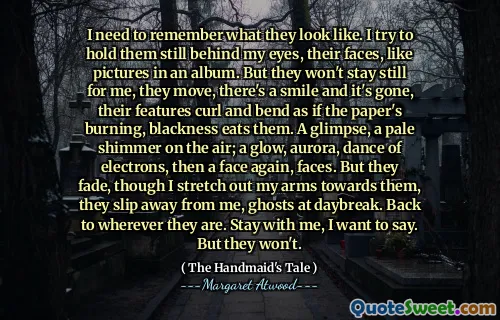I was taking something away from her, although she didn't know it. I was filching. Never mind that it was something she apparently didn't want or had no use for, had rejected even; still, it was hers, and if I took it away, this mysterious "it" I couldn't quite define.
In "The Handmaid's Tale" by Margaret Atwood, the narrator reflects on the act of taking something from someone without their knowledge. Despite the fact that the object in question appears unwanted and rejected by its owner, the narrator acknowledges that it still belongs to her. This internal conflict highlights the complexities of ownership and the emotional weight that comes with taking something that, while seemingly insignificant, still holds value to the person it belongs to.
The narrator feels a sense of wrongdoing, recognizing that removing the item, regardless of its apparent lack of value, is an act of filching. This reinforces a theme of loss and ownership in the narrative. Atwood's exploration of these themes provokes readers to consider the implications of possession and the unseen bonds that tie individuals to their belongings and identities.






